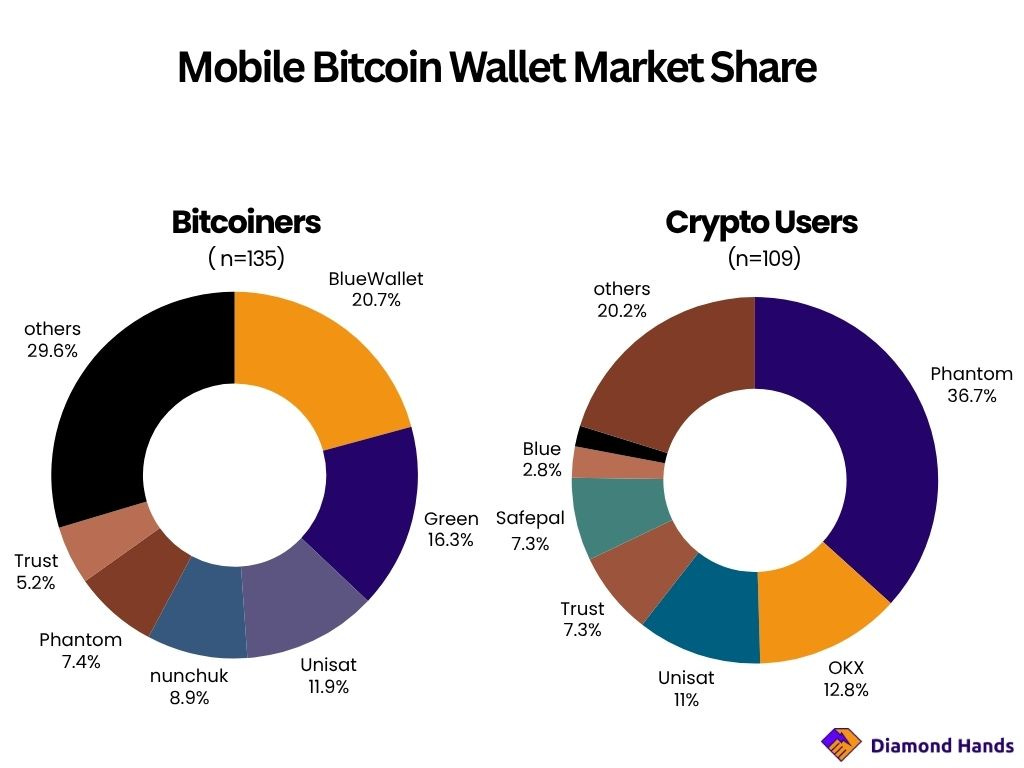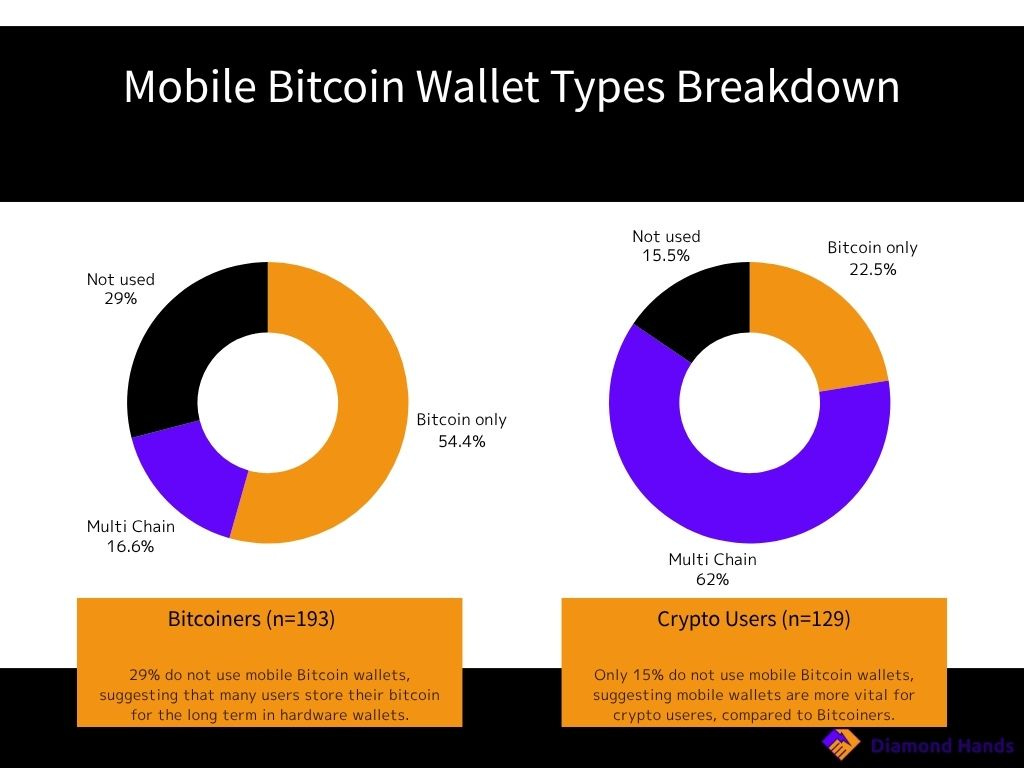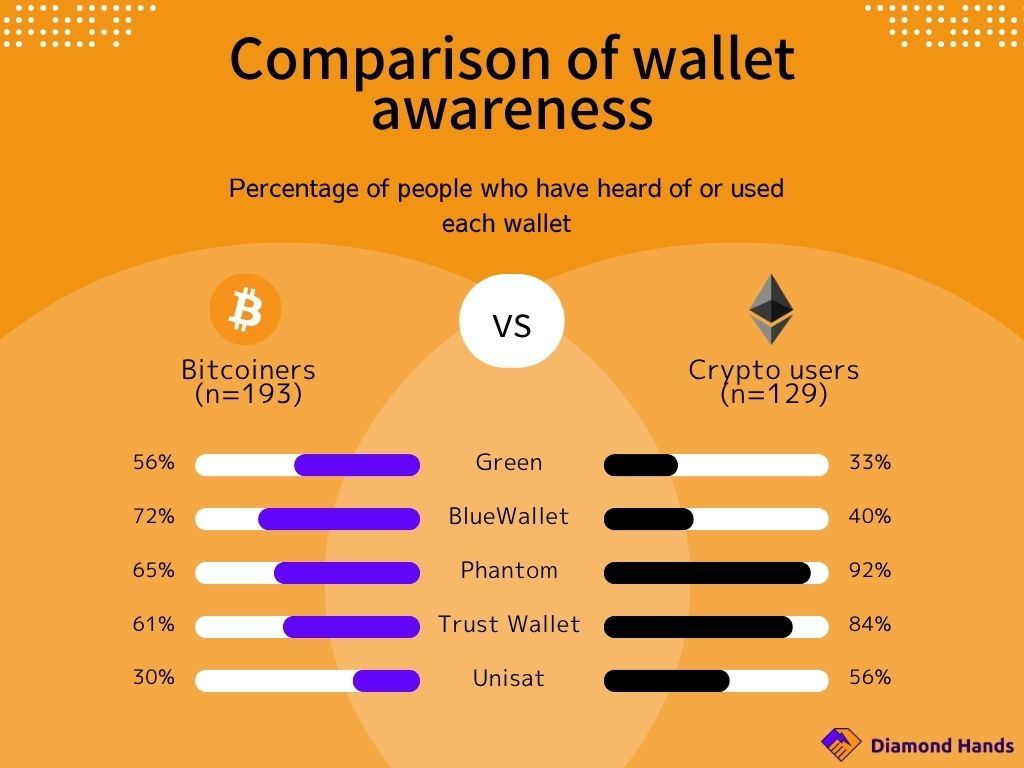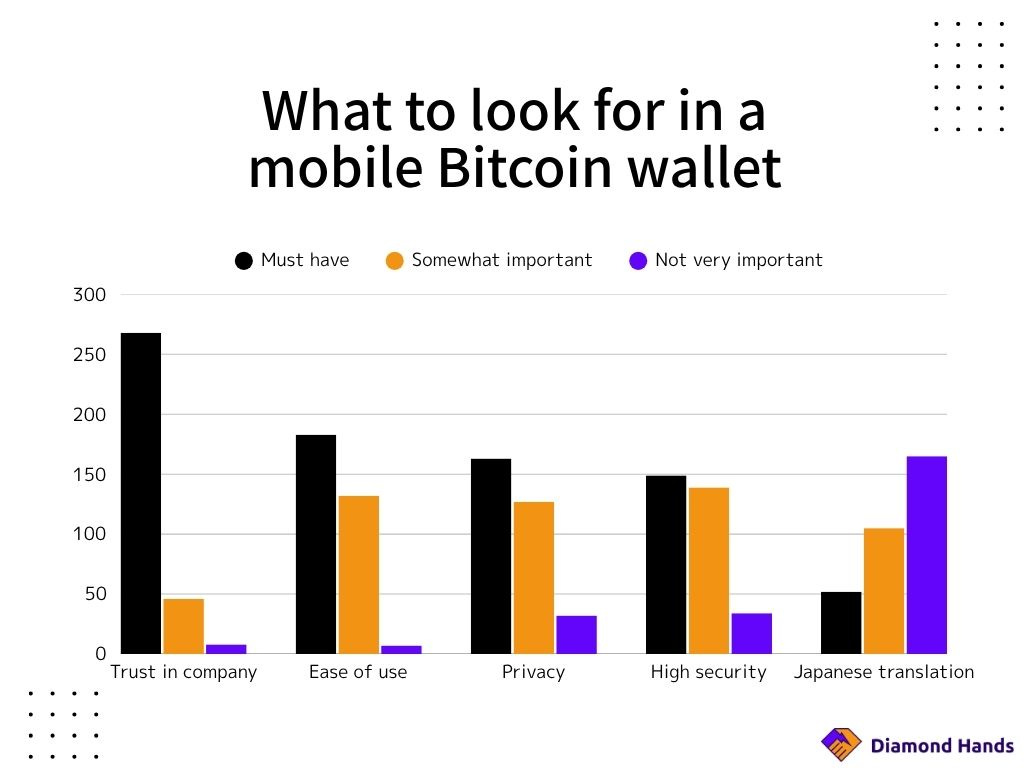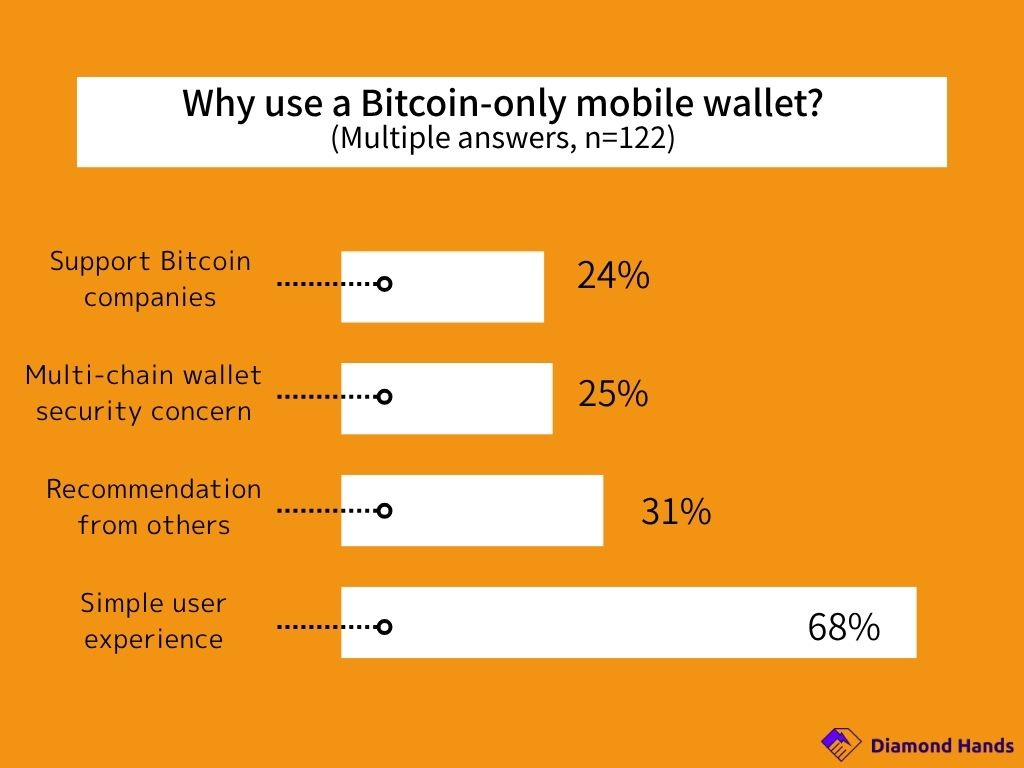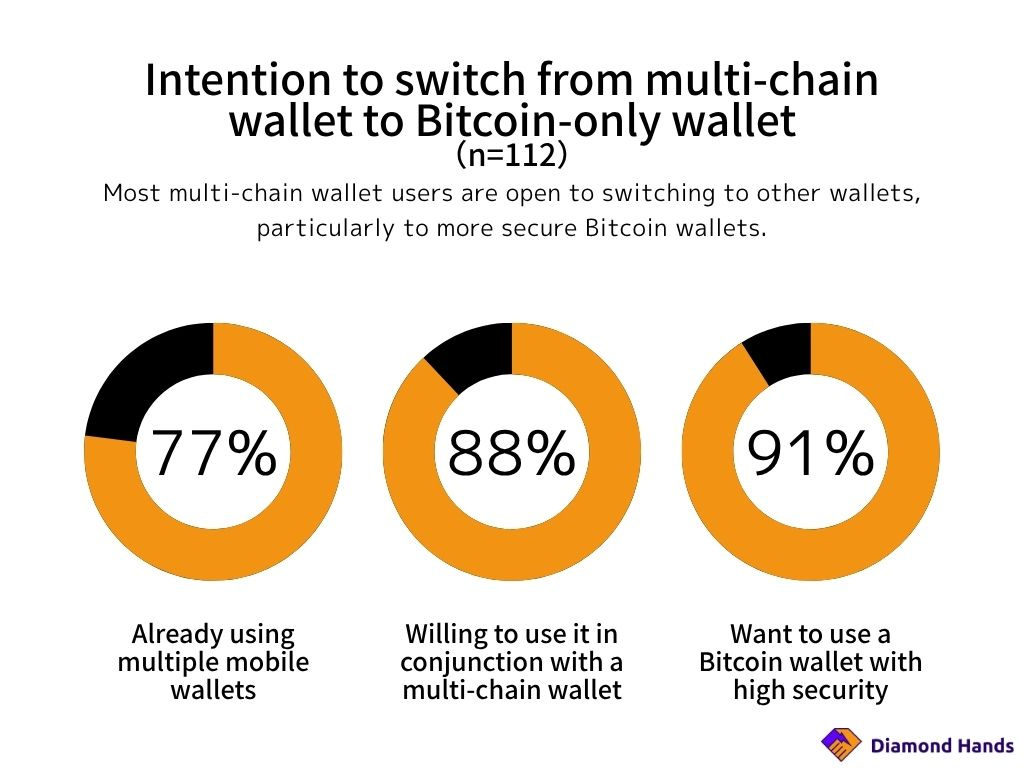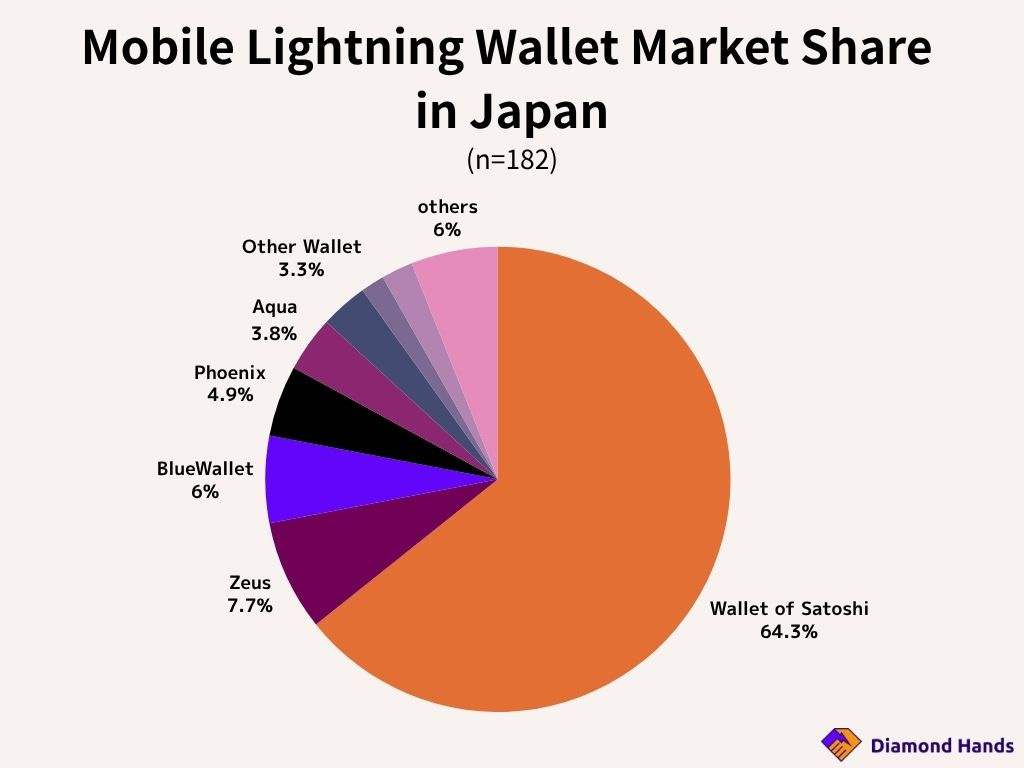Mobile Bitcoin Wallet Usage Survey in Japan– Key Findings
Last month, we conducted a survey focused on mobile Bitcoin wallet usage in Japan. Below is a summary of some key insights from the results.
Survey Purpose
The goal of the survey was to quantify and analyze the usage and market share of mobile Bitcoin wallets in Japan. By doing so, we aim to provide valuable insights for Bitcoin-related companies and projects to improve their marketing strategies and product development.
Research Questions
Which mobile Bitcoin wallets are most popular in Japan?
Is it true that many users treat multi-chain wallets as their primary Bitcoin wallet?
Are mobile wallet choices in Japan influenced more by influencers than by factors like security or privacy?
Is it difficult to convince users of multi-chain wallets to switch to Bitcoin-only wallets?
Are Bitcoin-only wallets under-recognized, with their benefits and features poorly understood?
Respondents and possible biases
Between April 16–22, 2025, a total of 322 individuals in Japan responded to the survey.
Participants were primarily recruited through communities like Diamond Hands and Bitcoiner Hanseikai(Bitcoin-focused Youtube channel)
As such, respondents may hold a favorable bias toward Bitcoin, and the results may not fully reflect the broader crypto user base. To increase participation, respondents were offered a chance to win Bitcoin rewards via lottery.
Definition of “Bitcoiners” vs “Crypto Users”
To manage respondent bias and generate more actionable insights, we categorized participants into two groups:
Bitcoiners: Users who answered that “most or all of their crypto holdings are in Bitcoin.”
Crypto Users: Users who answered that they “diversify across multiple cryptocurrencies including Bitcoin,” or that they “hold very little Bitcoin.”
Definition of mobile Bitcoin wallets vs mobile Lightning wallets
The main interest of this research is mobile Bitcoin wallets which are non-custodial and able to process onchain-transaction
In this particular research, we differentiate mobile Bitcoin wallets from mobile Lightning wallets.
Many Lightning wallets have an ability to swap between onchain and Lightning and thus can be used as a onchain wallet alternative. However, their main functionality is to send payments on the Lightning Network and we intentionally separated them from onchain Bitcoin wallets in this research.
Key Findings
Market shares for mobile Bitcoin wallets differ significantly among Bitcoiners and crypto users
Among Bitcoiners, 46% primarily use Bitcoin-only wallets like BlueWallet, Blockstream Green, or Nunchuk.
In contrast, fewer than 5% of crypto users use those wallets as their main option.
Over half use multi-chain wallets like Phantom or OKX Wallet as their Bitcoin wallet, indicating that many crypto users indeed use multi-chain mobile wallets as Bitcoin wallets.
Importance of mobile wallets and wallet usage frequency also vary between Bitcoiners and crypto users.
About 30% of Bitcoiners do not use a mobile wallet at all—suggesting they prefer long-term holding via hardware wallets.
Only 15% of crypto users reported not using a mobile wallet, and many reported frequent mobile wallet usage—indicating higher emphasis on use of mobile wallets than Bitcoiner counterparts
There was also a significant gap in wallet awareness between Bitcoiners and general crypto users.
Among Bitcoiners, over half were familiar with Bitcoin-only wallets like Green (56%) and BlueWallet (72%).
In contrast, only about 33% and 40% of crypto users had heard of them, highlighting a lack of awareness of Bitcoin-only wallets among the broader crypto audience.
On the other hand, multi-chain wallets like Phantom and Trust Wallet enjoyed very high recognition among crypto users—92% and 84% respectively—indicating the existence of go-to mobile wallets in the crypto space, unlike in the Bitcoin space.
78% of respondents said that “trust in the wallet company” was a must-have feature—highlighting the importance of credibility when choosing a mobile Bitcoin wallet.
Other highly valued features included ease of use, privacy, and security.
Surprisingly, Japanese language support and influencer endorsements were rated less important by most users.
These trends held consistent across both Bitcoiners and crypto users.
68% cited “simple user experience” as the main reason to choose Bitcoin-only wallets
On the other hand, fewer selected functionality as the main reason. Instead, they emphasized support for Bitcoin-focused companies and security concerns with multi-chain products.
To our surprise, the vast majority of crypto users show willingness to use or switch to Bitcoin-only mobile wallets.
77% of multi-chain wallet users reported already using multiple wallets. 88% said they would consider using a Bitcoin-only wallet alongside their current multi-chain wallet.
In addition, 91% expressed willingness to switch or add a new wallet if it offered significantly higher security—indicating strong interest in safety-first solutions.
Of users who use Lightning wallets in Japan, 64% use Wallet of Satoshi, a beginner-friendly custodial wallet that is widely adopted by most Lightning users.
Non-custodial Lightning wallets (e.g., Zeus, Phoenix, Aqua) collectively made up about 20% of usage, Zeus showing support from the local community.
Conclusion
Among crypto users, over half use multi-chain wallets as their main Bitcoin wallet. Across the wider market, this group likely outnumbers Bitcoin-only wallet users.
Awareness of Bitcoin-specific wallets is still low, and increasing visibility—especially through media and educational efforts—is a critical next step for Bitcoin companies.
The top priorities for users when choosing a wallet are trust in the wallet company, security, and privacy—while language support and influencer influence were less decisive.
Importantly, multi-chain wallet users were open to adopting Bitcoin-only wallets if security and reliability could be demonstrated.
Future Outlook
This report covers just a portion of the overall data. We plan to share deeper insights with Bitcoin projects upon request.
Following this mobile wallet survey, we also plan to conduct surveys on hardware wallet usage, exchange preferences and more.
Moving forward, we aim to broaden participation from non-Bitcoiner user segments to better understand market-wide trends and user preferences.
Additionally, since this survey focuses on trends within Japan, we plan to replicate similar surveys in other countries to enable global comparisons and gain a clearer picture of regional Bitcoin adoption patterns.


